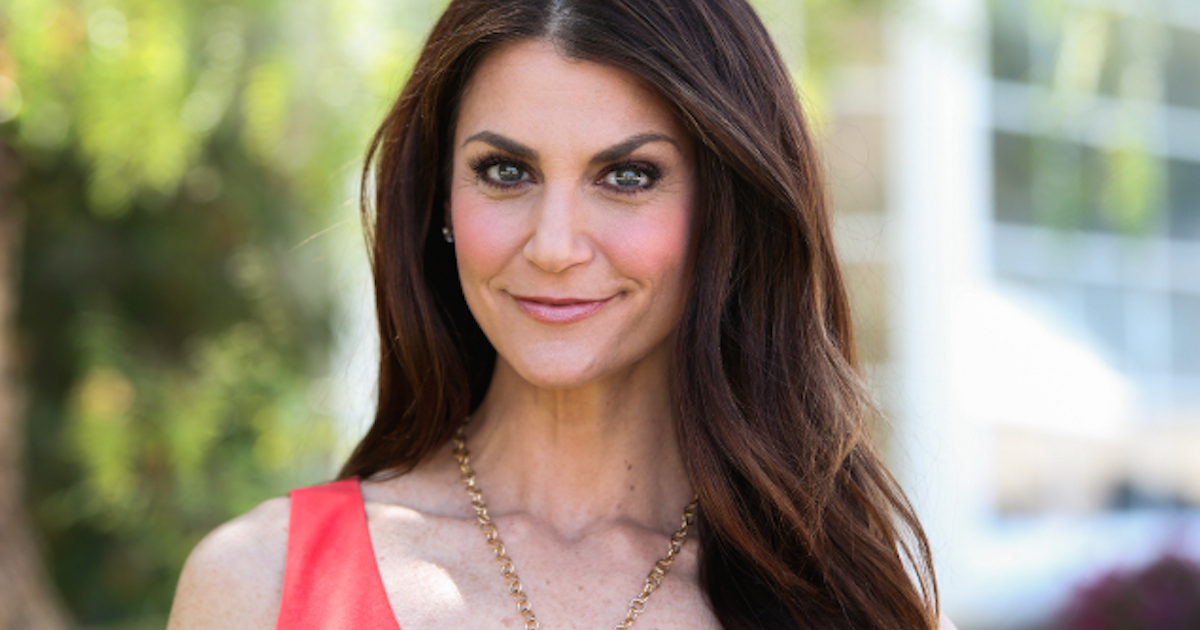Support during a Cancer Battle
- TV presenter and breast cancer survivor Samantha Harris was diagnosed with breast cancer in March 2014 after “a clear mammogram” that “missed the cancer in [her] right breast.”
- Thankfully, she is cancer-free today and showing others what it can look like to thrive as a cancer survivor. She recently posted about the importance of finding support when faced with cancer.
- Feeling supported during a cancer battle is hugely beneficial. According to licensed clinical psychologist Dr. Marianna Strongin, "studies have found consistently that loneliness is a significant risk factor for physical and mental illnesses and the trajectory of recovery."
- Psychiatrist Dr. Lori Plutchik says "people should do what feels right to them" when it comes to sharing or not sharing info about your cancer journey.
- If you’re someone who doesn’t feel like you are getting the support you need from your usual circles, Dr. Plutchik recommends reaching out to a mental health professional.
The former host of “Dancing with the Stars” recently took to her Instagram page to share a sentiment all too familiar to people who have received a cancer diagnosis.
Read MoreView this post on Instagram“We need so much support going through breast cancer,” she wrote under a picture of herself in the hospital presumably from sometime in 2014 after her diagnosis. “For those of you who are breasties like me … I am here to support, guide, cheer you on and so much more…
“It was a difficult experience, but I turned it into lemonade and found positivity in the situation.”
RELATED: Recommendations for a Healthy Lifestyle
Since overcoming cancer, the health and fitness guru has used her platform to talk about everything from tips for living “vibrantly,” cherishing every sunset, creative exercises and finding “like-minded people” to engage in shared activities with. She’s a great example of what it can look like to thrive after breast cancer.
“Every day I wake up as a cancer survivor, I am reminded of the strength and courage it took to fight my battle,” Harris wrote in June. “I urge you to join me in choosing a path of healing, strength, and compassion.”
Samatha Harris’ Cancer Journey
Samatha Harris was diagnosed with breast cancer in March 2014 after “a clear mammogram” that “missed the cancer in [her] right breast.”
I Wanted My Doctor To Like Me, Then He Missed My Breast Cancer
“Two doctors told me the lump I found 11 days later was ‘nothing.’ Finally, four months after finding that lump, I went to see a breast cancer specialist (a surgical oncologist) someone whose main job it is to look at breasts all day and specializes in the detection of breast cancer,” Harris explains on her website. “A subsequent MRI, needle biopsy and ultrasound also did not detect cancer, but it showed something was not right. We decided to take it out. Thank goodness.”
RELATED: When You're Getting a Mammogram, Ask About Dense Breasts
Pathology reports after the operation later revealed that Harris did, in fact, have breast cancer. For treatment, she underwent a bilateral mastectomy (the removal of all breast tissue from one breast) followed by reconstruction.
Feeling Supported as a Cancer Warrior
Today, she is still cancer-free but has to be closely monitored "for the rest of what doctors tell [her] is sure to be a long, healthy life."
"I remain on an estrogen-blocker to keep any future breast cancer from rearing its ugly head and I am back to all my regular activities," Harris wrote. "Mom to two energetic, wonderful little girls. Work. Hitting the gym hard-core as always. Happiness.
“When life gives you lemons, you Gotta Make Lemonade.”
Having Support during a Cancer Battle
Facing cancer can be a very isolating experience. But it’s important to know you’re not alone and to actively try to get the support you need.
Finding Your Support System: Heidi Kugler's Survivor Story
"Studies have found consistently that loneliness is a significant risk factor for physical and mental illnesses and the trajectory of recovery," licensed clinical psychologist Dr. Marianna Strongin tells SurvivorNet. "The act of sharing our time and words with others can alleviate emotional and physical pain."
Opening up to others during a cancer journey may come more naturally for some people. New York-based psychiatrist Dr. Lori Plutchik says there’s no right or wrong way for people with cancer to go about finding the support they need, but she does say some cancer warriors need to reach out to more people than others.
Seeking Support: The First 3 Things to Do After a Cancer Diagnosis
"Some people start to kind of share the information with many family members and friends, and they feel that works for them, and that it's a way that they can get support from other people," Dr. Lori Plutchik said. "Other people are much more private about it, and there is no one right way to handle this diagnosis.
"People should do what feels right to them."
RELATED: Check Out SurvivorNet’s Mental Health Resource Page
If you’re someone who doesn’t feel like you are getting the support you need from your usual circles, Dr. Plutchik recommends reaching out to “a mental health professional who is experienced in [working with cancer patients].”
"Some people don't need to go outside of their family and friends circle. They feel like they have enough support there," Plutchik previously told SurvivorNet. "But for people who feel like they need a little bit more, it is important to reach out to a mental health professional."
Learn more about SurvivorNet's rigorous medical review process.


